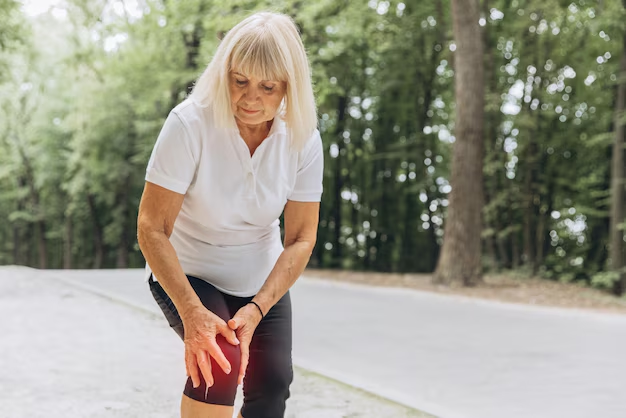Your Guide to How To Deal With Arthritis As a Senior
What You Get:
Free Guide
Free, helpful information about Health And Wellness and related How To Deal With Arthritis As a Senior topics.
Helpful Information
Get clear and easy-to-understand details about How To Deal With Arthritis As a Senior topics and resources.
Personalized Offers
Answer a few optional questions to receive offers or information related to Health And Wellness. The survey is optional and not required to access your free guide.
Navigating Arthritis in the Golden Years: A Guide for Seniors
Living with arthritis as a senior can be challenging, but understanding its various aspects and how to manage them effectively can significantly improve quality of life. This condition can affect anyone, but its prevalence often increases with age. Arthritis is not a single disease but a way to describe joint pain or disease, encompassing over 100 different types. For seniors, managing arthritis involves a delicate balance of lifestyle adjustments, effective communication with healthcare providers, and mental well-being.
Understanding Arthritis
Types of Arthritis Common in Seniors
Osteoarthritis (OA): This is the most common form of arthritis among seniors. It results from wear and tear on joints over time, leading to pain, stiffness, and swelling.
Rheumatoid Arthritis (RA): An autoimmune disorder that affects lining of the joints, causing painful swelling and eventually joint deformity.
Gout: A form of arthritis characterized by sudden, severe attacks of pain, swelling, redness, and tenderness in the joints.
Recognizing Symptoms
- Joint Pain and Stiffness: Most noticeable symptoms that worsen with age.
- Swelling and Redness: May indicate inflammation around the joints.
- Reduced Range of Motion: Difficulty moving joints through their full range of motion can develop over time.
Understanding these symptoms empowers seniors to recognize early signs and seek timely professional guidance, enhancing their quality of life.
Practical Strategies for Managing Arthritis
Diet and Nutrition
Anti-Inflammatory Foods: Incorporating foods like fish rich in omega-3 fatty acids, fruits, and vegetables can aid in reducing inflammation.
Limit Processed Foods: These often exacerbate inflammatory conditions, so try to keep them to a minimum.
Maintain a Healthy Weight: Excess weight puts additional strain on joints, particularly those in the lower body.
Physical Activity
- Low-Impact Exercises: Activities such as walking, swimming, and cycling are gentle on joints while helping maintain mobility and strength.
- Strength Training: Helps build muscle around the joints, providing them with better support.
Regular physical activity is crucial for managing arthritis. However, it's essential to match the exercise intensity with one's physical abilities—overexertion can potentially exacerbate symptoms.
Lifestyle Adjustments
- Assistive Devices: Tools like canes, handrails, and specialized kitchen tools can help maintain independence.
- Adaptive Clothing and Footwear: These can reduce strain on joints, making daily activities more manageable.
- Ergonomic Environment: Arrange your home and workspaces to minimize strain and enhance comfort.
Treatment Options
Medications
There are various over-the-counter (OTC) and prescribed medications available aimed at relief from arthritis symptoms. It's vital to have open conversations with your healthcare provider about what options are best for you.
Therapeutic Approaches
- Physical Therapy: Often recommended to help improve movement and function.
- Occupational Therapy: Provides strategies for managing daily tasks without undue pain.
Surgical Options
In some cases, surgery may be considered for arthritis management, especially if other treatments are not effective. This could involve joint repair, replacement, or fusion.
Emphasizing Mental and Emotional Well-Being
Coping with Chronic Pain
Living with arthritis often means dealing with chronic pain, which can take a toll on mental health. Strategies for coping effectively include:
- Mindfulness and Relaxation Techniques: Such as yoga or meditation, to reduce stress levels.
- Support Groups: Connecting with others who understand the challenges of arthritis.
Maintaining Social Connections
Being socially active can fight feelings of isolation and depression. Whether participating in social clubs, volunteering, or engaging with family and friends, maintaining these connections is vital.
Creating an Action Plan
Here's a handy checklist to help seniors manage arthritis effectively:
- 🥗 Eat Smart: Focus on a balanced diet rich in anti-inflammatory foods.
- 🏃♀️ Stay Active: Engage in regular low-impact exercises like walking or swimming.
- 💪 Stay Strong: Incorporate strength training into your routine.
- 🏡 Adapt Home: Utilize assistive devices and maintain an ergonomic living environment.
- 💊 Consult Healthcare Providers: Regularly discuss symptoms and treatment plans with your doctor.
- 🧘♂️ Manage Stress: Practice relaxation techniques like meditation or yoga.
- 👥 Stay Connected: Build a support system through friends, family, and support groups.
Looking to the Future
While arthritis can be a lifelong condition, the right strategies and mindset can significantly alleviate the challenges associated with it. By staying informed and proactive, seniors can enhance their quality of life, maintain independence, and enjoy their golden years with confidence and comfort.
Living with arthritis necessitates a lifelong commitment to self-care, from healthy living habits to understanding treatment options. With the right approach and support, seniors can lead active, fulfilling lives despite the challenges of arthritis.

Discover More
